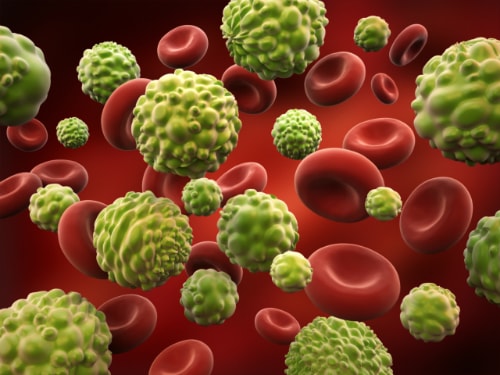7 more carcinogens discovered
American scientists have discovered seven more substances that can lead to cancer, bringing the total number of carcinogens in humans to 248.
Among the 7 new substances added to the list of carcinogens, there are 5 types of viruses including: Human immunodeficiency virus type 1 (HIV-1), human T-lymphocyte leukemia virus type 1 (HTLV-1), Epstein-Barr virus (EBV), herpes virus (KSHV) and Merkel cell polyoma virus (MCV). According to a report by the US Department of Health, these 5 types of viruses are related to 20 cancers such as: non-melanoma skin cancer, eye cancer, lung cancer, stomach cancer and many types of lymphoma.
"About 12% of human cancers are caused by viruses, and there are currently no vaccines for these five viruses," CNN quoted Linda Birnbaum, director of the National Institute of Environmental Health Sciences. "For example, HIV/AIDS attacks the immune system, depriving the body of its ability to fight cancer. If your immune system is weakened, you are at increased risk of cancer."
 |
| Photo: cygnushospitals.com. |
Appearing in the new group of carcinogens is Trichloroethylene, also known as TCE, which is often used in industry to create hydrofluorocarbons. TCE decomposes slowly, easily spreads into the air, seeps through the soil and contaminates drinking water sources. In addition,Cobalt and cobalt compounds, which are used to make alloys, military equipment, and batteries, are also listed as hazardous.
Exposure to viruses, chemicals, or radiation that can cause cancer doesn't mean you'll definitely get cancer. "Most people know that smoking causes lung cancer, but only 11% of smokers get it," Birnbaum says. She explains that the risk of disease also depends on genes, lifestyle, diet, and age of exposure. However, it's undeniable that cigarette smoke is the leading cause of lung cancer, as smokers are 15-30 times more likely to die from lung cancer than non-smokers.
To limit the harmful effects of the above 7 substances, experts recommend that the community practice safe sex, not share needles, proactively discuss with doctors about health protection methods and have regular check-ups.
According to VNE

